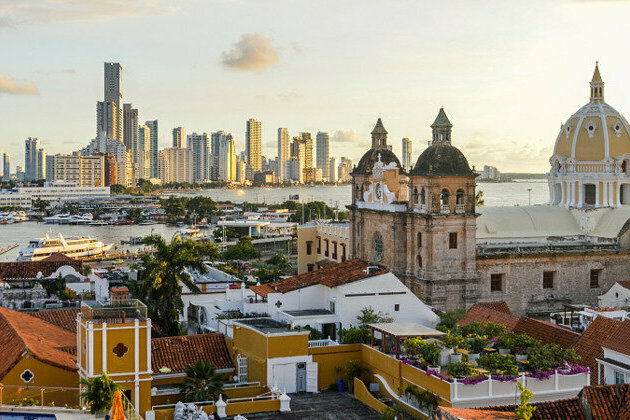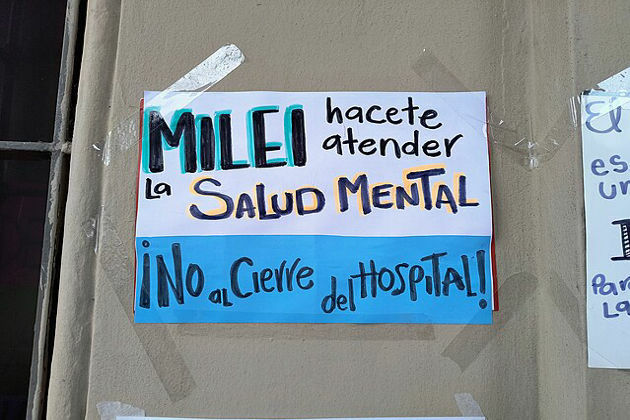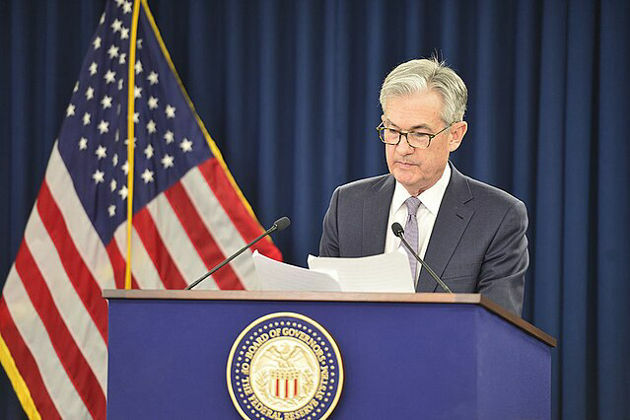Building an equitable fiscal future for Latin America
CGTN
26 Jul 2023, 03:40 GMT+10

View of the city of Cartagena, Colombia. /CFP
Editor's note: Jose Antonio Ocampo, a former United Nations under-secretary-general and a former minister of finance and public credit of Colombia, is a professor at Columbia University, a member of the UN Committee for Development Policy, and a member of the Independent Commission for the Reform of International Corporate Taxation. The article reflects the author's opinions and not necessarily the views of CGTN.
On July 27-28, Colombia will host the first ministerial summit for sustainable, inclusive, and equitable global taxation, with the support of Brazil and Chile. The choice of venue is not coincidental: it reflects Colombia's commitment to tackling poverty and inequality through progressive taxes.
The Colombian government's flagship tax reform, spearheaded by the finance ministry under my direction and approved by Colombia's Congress in late 2022, is a prime example of this commitment. But, following its implementation, our focus must shift to improving tax progressivity across Latin America and the Caribbean (LAC), which remains among the world's most economically unequal regions.
Latin American countries suffer from staggering income disparities, with the top 10 percent of earners making 22 times more than the poorest 10 percent and the top 1 percent accounting for 21 percent of the region's total income. Wealth inequality is even more pronounced, as the region's wealthiest 10 percent own 77 percent of total household wealth, compared to less than 1 percent for the bottom 50 percent.
LAC countries also share an entrenched, regressive tax system, reflecting their longstanding failure to tax high incomes, particularly capital income. Moreover, widespread tax avoidance and evasion have deprived governments of the resources they need to increase social spending and mitigate the effects of income inequality.
While aggressive tax competition between countries has been widely hailed as a boon for foreign direct investment and economic growth, the evidence shows that tax incentives and privileges attract financial flows but do not increase real investment, which tends to be driven by other factors such as the quality of institutions, the skills of the workforce, and infrastructure. Misguided notions that incentivize relentless tax competition between countries must be abandoned in favor of new growth policies that rely on greater global coordination between tax authorities.
LAC also shares a common frustration with how international tax-reform negotiations have been conducted so far. There is very little disagreement that the global tax system is outdated and unable to adapt to the realities of twenty-first-century business models. Multinational corporations have become adept at setting up shell companies to shift their profits to tax havens. This problem has been exacerbated by the advent of the digital economy, which has made it far easier for companies and wealthy individuals to avoid paying their fair share.
CFP
To address some of the most egregious tax-avoidance strategies used by multinational companies, the G20 and the OECD launched the Base Erosion and Profit Shifting initiative, which culminated in a package of reforms endorsed by 138 countries and jurisdictions. But early hopes that this process would lead to comprehensive reforms have been shattered. Despite some innovative elements, the measures outlined in the OECD's Pillar Two global tax deal might even deepen existing inequalities between countries.
While Pillar Two's 15 percent global minimum corporate tax rate is innovative and promising, its current structure favors countries in the Global North, where the world's largest corporations are headquartered, and tax havens. The current deal enables these countries to impose the minimum tax on profits earned in the Global South, thereby collecting taxes on profits that should not have been diverted in the first place.
Moreover, the 15 percent minimum corporate tax rate is well below the Latin American average, which currently stands at 24 percent. It is also lower than the 25 percent minimum rate proposed by the Independent Commission for the Reform of International Corporate Taxation, of which I am a member alongside colleagues including Joseph E. Stiglitz, Jayati Ghosh, and Thomas Piketty.
This disappointing outcome is partly the result of LAC countries' inability to approach multilateral negotiations with a strong and united voice. However, it is important to note that the frustration is not limited to the region: African countries have also called for the United Nations, rather than the OECD, to take the lead in negotiations to reform the international tax system.
To achieve fairer regulatory frameworks that better represent the Global South, we must ensure that international governance processes are transparent and equitable. The upcoming summit in Cartagena marks the first step toward changing how LAC countries approach multilateral negotiations to establish more effective taxation across the region. The conference, which is supported by the UN Economic Commission for Latin America and the Caribbean and includes 16 participating countries, is the result of a lengthy preparatory process characterized by active engagement with the private sector, academia, and civil society.
This historic inaugural summit will, one hopes, serve as a platform for collaboration between the region's governments, enabling us to defend our shared interests, stop competing on tax rates to attract foreign investment and develop a framework for taxing digital services that align with our needs. With inequality and tax avoidance on the rise, LAC governments must forge an equitable future based on the principle of shared prosperity.
Copyright: Project Syndicate, 2023
(If you want to contribute and have specific expertise, please contact us at [email protected]. Follow @thouse_opinionson Twitter to discover the latest commentaries in the CGTN Opinion Section.)
Source: CGTN
 Share
Share
 Tweet
Tweet
 Share
Share
 Flip
Flip
 Email
Email
Watch latest videos
Subscribe and Follow
Get a daily dose of Brazil Sun news through our daily email, its complimentary and keeps you fully up to date with world and business news as well.
News RELEASES
Publish news of your business, community or sports group, personnel appointments, major event and more by submitting a news release to Brazil Sun.
More InformationSouth America
SectionBrazil’s ex-president accused of leading illegal spy operation
BRASILIA, Brazil: Former Brazilian President Jair Bolsonaro is accused of playing a key role in an illegal surveillance operation orchestrated...
Farmers exploit loophole in Amazon soy deal to clear rainforest
SANTAREM, Brazil: As Brazil cements its position as the world's top soy exporter, a new wave of deforestation is spreading across the...
Brazil aims to restart poultry trade after bird flu clearance
SAO PAULO, Brazil: Brazil is taking confident steps to restore its dominance in global poultry exports after declaring its commercial...
Drug shortages and layoffs spark health crisis in Argentina
BUENOS AIRES, Argentina: Since taking office in December 2023, Argentine President Javier Milei has implemented sweeping austerity...
(SP)U.S.-MIAMI-FOOTBALL-FIFA CLUB WORLD CUP-GROUP A-INTER MIAMI CF VS PALMEIRAS
(250624) -- MIAMI, June 24, 2025 (Xinhua) -- Palmeiras' Estevao arrives at the stadium before the group A match between Inter Miami...
Top shooters of the country to feature in National Selection Trials 3 and 4
Dehradun (Uttarakhand) [India], July 23 (ANI): India's top shooters will be seen in action as the National Selection Trials 3 and 4...
Business
SectionBird flu plan in the works as USDA weighs export, vaccine risks
CHICAGO, Illinois: For the first time in history, U.S. officials are considering a coordinated plan to vaccinate poultry against bird...
U.S. stocks gain ground as investors shrug off Mideast concerns
NEW YORK, New York - U.S. stocks made strong gains on Monday, brushing off concerns Donald Trump's surprise ambush of Iranian nuclear...
U.S. bombs Iran nuclear sites, investors eye oil and safe havens
NEW YORK CITY, New York: The U.S. bombing of Iranian nuclear sites has cast a shadow over global markets, with investors bracing for...
Farmers exploit loophole in Amazon soy deal to clear rainforest
SANTAREM, Brazil: As Brazil cements its position as the world's top soy exporter, a new wave of deforestation is spreading across the...
Europe eases rates as Fed holds and Trump threatens tariffs
ZURICH, Switzerland: A wave of central banks across Europe surprised markets last week by lowering interest rates, responding to easing...
Federal Reserve chief weighs next move as economic outlook wavers
WASHINGTON, D.C.: The U.S. economy is performing reasonably well, but Federal Reserve Chair Jerome Powell faces a difficult decision...












